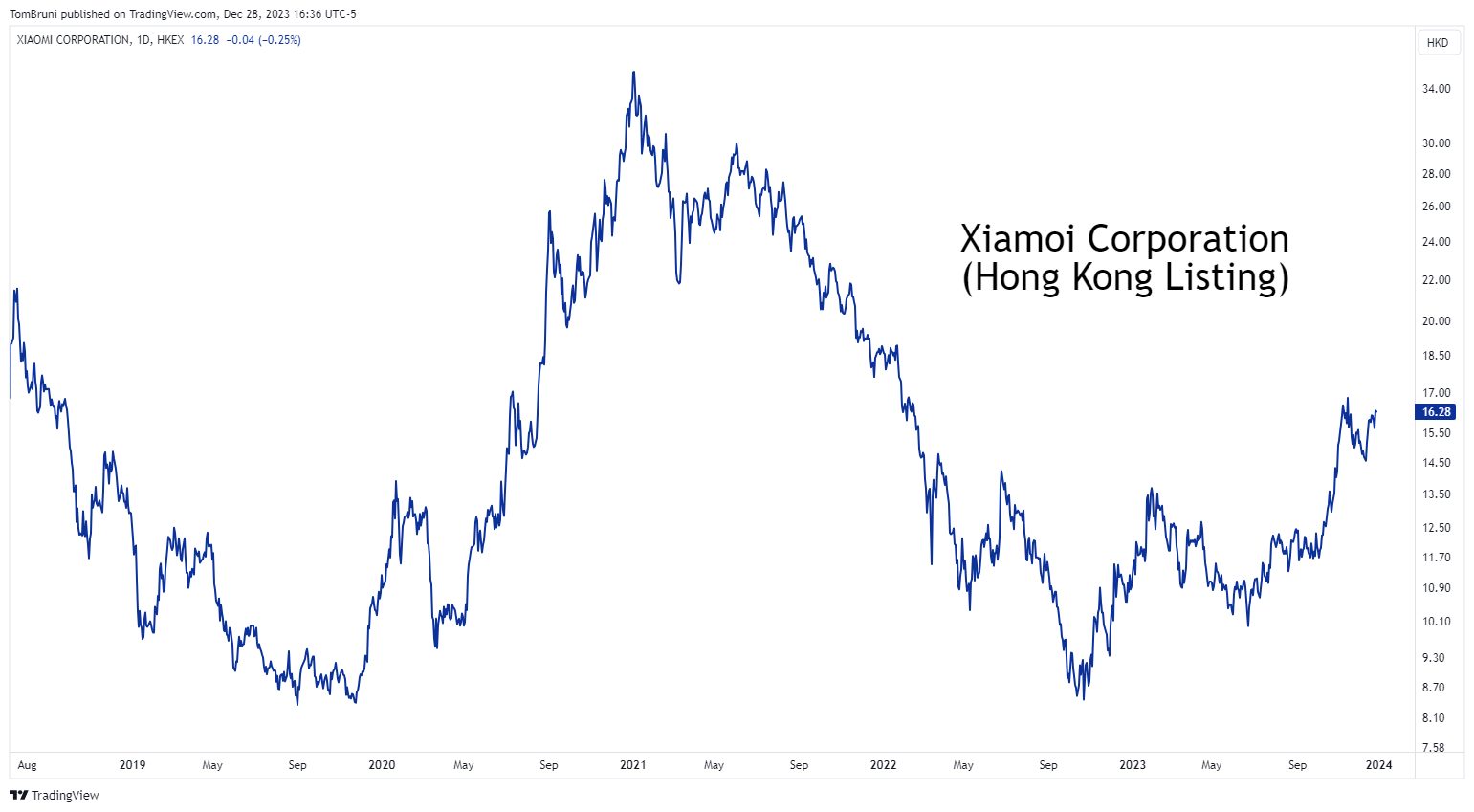Chinese smartphone giant Xiaomi is entering the highly competitive electric vehicle (EV) market, revealing its first electric car this weekend. 👀
The consumer electronics company unveiled its SU7 sedan, which it says it spent more than $1.4 billion to develop. The vehicle is set to roll out in China next year and is attempting to do something Faraday Future and other competitors have failed to do: create a software-focused vehicle that matches the technology people find in their phones to what’s happening in their cars.
Executives say the SU7 is in trial production and is set to hit the domestic market in a few months, although the price has not been finalized yet. With the company’s design team previously working at BMW and Mercedes-Benz, CEO Lei Jun has bold ambitions to become an industry leader in electric vehicles and autonomous driving. 🚗
However, after three years of development, the vehicle will face stiff competition in the world’s largest car market (by both demand and supply). Domestic automakers have tried to differentiate their products through ambitious car-compatible tech offerings, seeing mixed success.
Not only is domestic competition high, but so is international competition. Automakers from around the globe want a piece of the Chinese market but are facing several challenges. Geopolitical tensions continue to heat up, and there is continued pressure to bring down the cost of vehicles enough to generate mass adoption. ⚡
So far, Chinese manufacturers have the upper hand with the help of government support, cheaper labor costs, and technological advances. 🧑🏭
Ultimately, we’ll have to wait and see whether the maker of smartphones and home appliances can successfully create the “Human x Car x Home” smart ecosystem it’s setting out to build. That’ll mean integrating with its own software and being compatible with Apple’s CarPlay and AirPlay, as well as other tech giants’ software. 🤖
For now, it’ll have to focus on creating a high-end car to drive it toward profitable growth and allow it to develop a cheaper, mass-market vehicle over time. Its CEO even hinted that the price tag would not be cheap, dismissing rumors of a 99,000 or 140,000 yuan vehicle.
Xiaomi shares are up over 40% this year after reaching fresh all-time lows in late 2022. The rebound came on the back of strength in its core business, with it planning to spend 25% more in research and development this year to help propel its growth. However, they’re essentially flat relative to their 2018 IPO price. 📊

